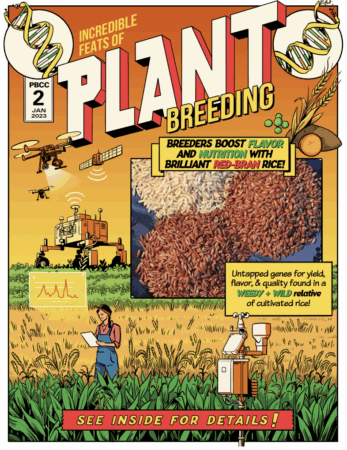Readers with a long memory will remember that I promised I would keep an eye on the manifesto that was supposed to come out of the 3rd International Agrobiodiversity Congress, held back in May. Well, it has arrived, the 2025 Kunming Manifesto: Agrobiodiversity for People and Planet. Here’s a taster:
The agrobiodiversity conservation, use, and success stories are largely the domain of women, who are often the most marginalized in marginalized groups. In tandem with greater inclusion, unlocking agrobiodiversity’s potential to help solve the world’s greatest challenges requires transformative intervention by governments around the world. This includes repurposing agricultural subsidies, enacting policies to support the seed production and distribution systems and embedding agrobiodiversity in the global fora that work to mitigate climate change, reverse biodiversity loss, control desertification, and eliminate hunger.
There are “actionable recommendations” on each of the topics of the Congress…
- Agrobiodiversity for Economic Growth
- Agrobiodiversity for Climate Change Adaptation and Mitigation
- Agrobiodiversity for Improved Environmental Health and Biodiversity
- Agrobiodiversity for Healthy Diets
- Agrobiodiversity for Gender and Social Inclusion
- Agrobiodiversity Conservation and Management Strategies
…followed by suggested “next steps” for farmers and practitioners, policy makers, scientists, and the private sector.
Anything on genebanks? Well, lots on community seed banks, that’s for sure. But also this:
Because community seed banks are vital platforms for action learning and seed system strengthening, incentives and rights-based policies should be implemented to reward the contributions of custodian farmers. Additionally, increased support is needed for local and national genebanks, enhanced documentation and conservation of wild PGRFA and landraces, and greater investment in participatory plant breeding. Stronger national policies that enable farmers to commercialize seeds of farmer varieties need to be in place.
I have to say that, given some the people involved, I would have expected at least a passing reference to international genebanks, but I guess this particular Congress wasn’t the right place for that.
